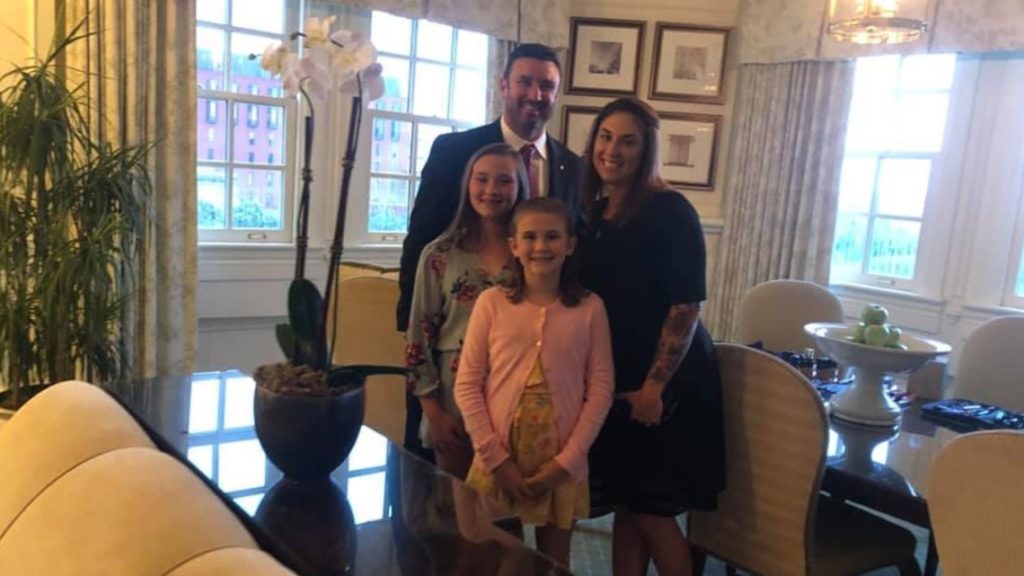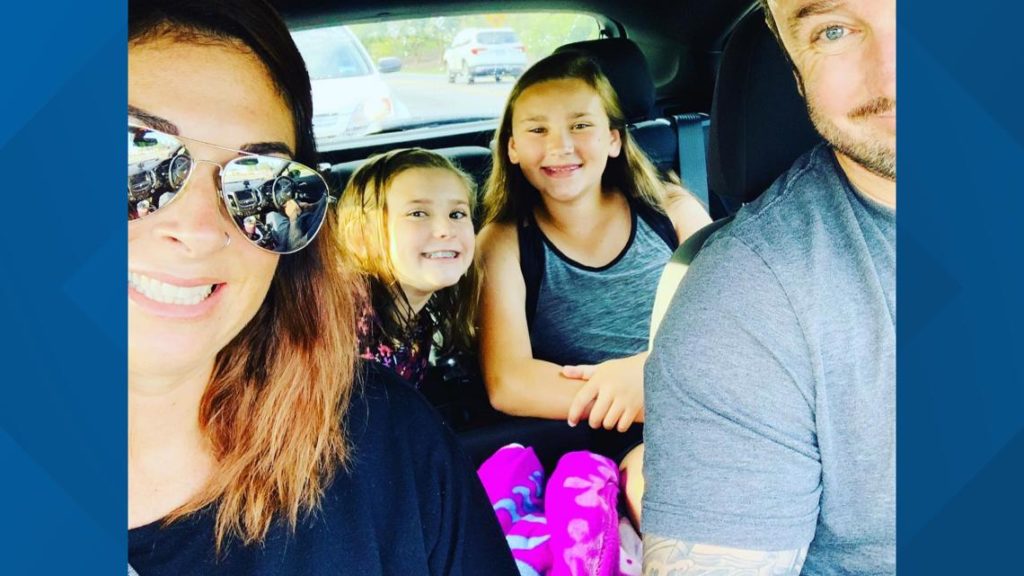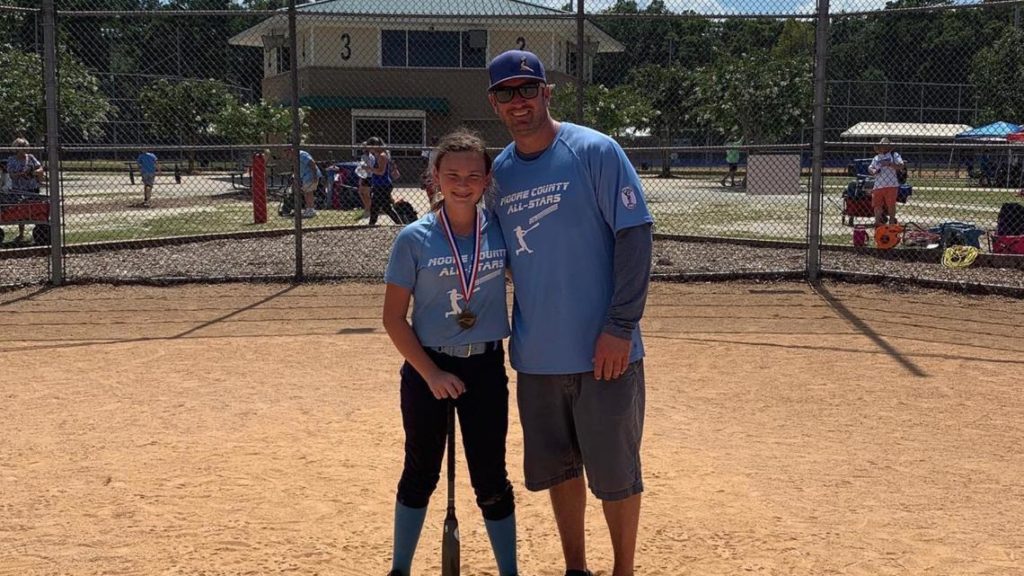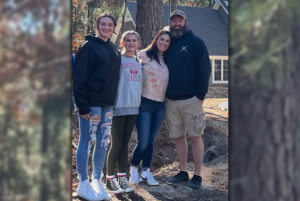WASHINGTON — A Green Beret, who has dedicated his life to serving his country in war-zones around the world, is now fighting a different battle here at home.
Army SFC Richard Stayskal is taking on cancer and Congress. He hopes to change the Supreme Court precedent, which prohibits active duty service-members from suing for malpractice or negligence.
Let’s get the law school lesson out of the way — Stayskal is fighting what’s known as the Feres Doctrine. It’s a 1950 Supreme Court decision, which essentially means if you’re in the military, you can’t sue your employer, even for medical malpractice. These are people who are willing to die to defend our way of life, but this ruling takes away one of the most basic rights granted to citizens.
Stayskal has served in the military for 17 years. He was diagnosed with Stage 4 cancer and is terminally ill.
“I’d be lying if I said I didn’t care,” Stayskal said. “I mean, I definitely cared, but not in the sense of I cared about me. I just pictured my wife’s face and my two daughters. Everybody’s going to go at some point, but picturing them being sad is I think what scared me the most.”
But it is how and when he was diagnosed that led to his next battle.
“He said, ‘How come nobody said anything? You can see it on the scan,'” Stayskal’s wife, Megan, recalled.
A scan from Womack Army Medical Center in Fort Bragg, N.C., dated January 2017 showed a mass on Stayskal’s lungs. Stayskal and his wife Megan said no one ever told them about it. He explained the Army let him go to dive school, eventually treated him for what they said was pneumonia, but never said anything about a tumor on his lungs.
Credit: Stayskal Family
Scan of Stayskal’s lungs dated January 2017 shows mass
They were finally able to go to an off-post pulmonologist, but by then, something was really wrong. Stayskal learned he had cancer and it was growing.
“He was basically like, ‘If you had known about this six months ago, it would have been a different story,'” Stayskal said. “It was half the size, and it hadn’t grown onto my trachea. It had just been on my lungs.”
Stayskal had surgery and chemo, but eventually they got the news the cancer spread.
“I was devastated,” he said. “I didn’t think it would happen. It was rough and all the thoughts kept coming back. It was, ‘Man, if it had been six months ago and somebody had told me.'”
Then, came what felt like a punch to the gut — Stayskal learned about the Feres Doctrine. It means he has no civil legal way to hold anyone accountable for what he’s been through.
“When you go to seek any kind of anything, recourse or whatever you want to call it, the answer I kept getting is, ‘There’s nothing you can do about it,'” Stayskal said.
“I have the right to sue if a doctor does something wrong to me, but just because he puts on a uniform he cannot,” Meagan said.
So the family decided to do what Stayskal has done his entire military career — fight. They’re fighting because he’ll miss out on father-daughter life lessons on the way to softball practice. They’re fighting because daughters Addison and Carly will have to lean on each other in the future.
And they’re fighting because eventually, Stayskal knows, he’ll leave his family.
“My fear is, this day and age it’s so hard for people to make it with two parents,” Stayskal explained. “My fear is for her to raise the two girls by herself. So, I think I’m hoping to get some kind of compensation that will just help her to get what I would have been able to do had I still been here — to give the girls a fair shot at college, a good high school, a decent car to get around, the everyday stuff that everybody tries to do.”
They took that fight to Washington, hoping Congress will rethink Feres. They’ve made the 350-mile drive at least a dozen times.
One trip included several meetings with senators. They make the journey because they hope telling their story to lawmakers could be the thing that makes the difference for their family and others like them.
On Capitol Hill, they went office to office with their attorney, Natalie Khawam with the Whistleblower Law Firm, to gain support for the movement. Sen. John Kennedy, R-La., told Stayskal he was sorry about his situation.
“I did not even know that members of our military didn’t have the right,” Kennedy explained.
Some lawmakers have agreed to include a rollback of part of the Feres Doctrine in the defense spending bill or NDAA. Right now, the House and Senate conferees are debating an amendment allowing service-members to sue in medical malpractice cases. Stayskal is hoping while he undergoes clinical treatments, lawmakers can overcome opposition in the Senate.
RELATED: For decades, military spouses weren’t reimbursed for job-finding costs that come with moving. Now, Congress is considering doubling their benefits
“It kind of felt like a little bit of a roller coaster,” Megan Stayskal said after several meetings. “We’ve had a lot of great response, so just keep hoping that we keep getting that.”
Members of the public can ask their senators and representatives to support the amendment in the NDAA.
Take action: Show your support. Call and ask to be connected to your lawmakers at the U.S. House of Representatives 202-225-3121, or U.S. Senators at 202-224-3121.
But this is an uphill battle. Opponents fear it could open the floodgates. Department of Defense officials told WUSA9 an exception for malpractice would essentially create a special class within the military. A spokesperson also maintains patient safety does not depend on whether the patient can sue.
“In the military where money is scarce and needed, you know, who wants to pay for litigation and depositions and take the time and potentially pay judgments,” American University law professor Andrew Popper said. “It’s going to be diverting. It’s going to be difficult.”
In the 1950 Supreme Court case, justices declared that the federal government could not be held liable for injuries to members of the armed forces, which arise from activities “incident to military service.”
SFC Richard Stayskal has served in the military for 17 years
SFC Richard Stayskal has served in the military for 17 years.
The Feres Doctrine can be changed two ways. Either the U.S. Supreme Court can overturn its initial ruling, or Congress can pass legislation to amend the Federal Tort Claims Act, or FTCA, which controls how citizens can sue the government.
Popper is a Vietnam veteran. His theory on Feres was just published in the Boston College Law Review.
“The fact of the matter is if an entity, an individual, a person knows that they bear responsibility for something they’re contemplating doing, they’re less likely to do it,” he explained. “Our entire criminal justice system is based on that principle.”
For now, fighting for that principle could be the Stayskals’ final battle together.
“It’s not something that I ever thought about,” Meagan Stayskal teared up. “You don’t think about not growing old with the person that you marry.”
Richard Stayskal is hoping to use whatever time he has left to set an example for his young family.
“I hope they’re proud of me and I hope they just feel that,” Richard Stayskal said. “I know it’s been hard on the girls.”
“The fact that even though he’s sick and has this diagnosis over him, that he’s still out there fighting for others, I think just speaks volumes of who he is as a person, and I think gives the kids kind of a role model,” Megan Stayskal added. “You know, like this was your dad.”
The family still filed a lawsuit as part of their fight to overturn Feres.
“Due to ongoing ligation, it would be inappropriate to comment on the specifics of this case,” a U.S. Army Medical Command spokesperson wrote in response to WUSA9.
Here is the full statement from Jessica R. Maxwell, the Department of Defense spokesperson:
“DoD continues to support the longstanding Congressional policy that all military members and their families should be under the same compensation system for personal injuries or death, whether caused by combat, training accident, household accident, natural cause, or other reason.
If the Feres Doctrine were reversed or an exception carved out for medical claims, an injured member or the family of a deceased member would be allowed to sue for certain injuries based on an allegation that some other military member or government employee was negligent. In contrast, military members injured or the families of members killed in combat or other military operations or in a stateside accident would have only the no-fault compensation system, even if the injury or death were due to friendly fire or there were some other issue of negligence by another military member. The combat injury or death would appear to be valued lower than an injury or death where a tort claim would be allowed. Such an inequity toward members injured or killed in military operations or a wide range of other circumstances could not be sustained.
The Military Health System has a comprehensive program of quality assurance, which applies equally to all cases of compensation resulting from inadequate medical care, whether in the form of a tort claim award or the no-fault compensation system. (Most patients of military hospitals and clinics — i.e., dependents and retirees — can sue the United States for medical malpractice.) In both types of cases, the system provides for disclosure to patients about what happened in their care, including any adverse events. Further, the system requires peer review, including peer review external to DOD, to determine whether the standard of care was met, and accountability for cases in which it was not. This includes reporting to the National Practitioner Data Bank, where information is available to licensing bodies and future employers. The patient safety and clinical quality management system does not depend on whether the patient can sue. Nothing in the experience of DOD (where, as noted above, most patients can sue) or the Department of Veterans Affairs suggests that more malpractice litigation would improve quality. Rather, more malpractice suits would likely bring defensive medicine practices into military health care, compromising every day medical decision making essential to military readiness.
Richard Stayskal’s latest scans show his cancer has spread again. He’s hoping while he undergoes clinical treatments, lawmakers can overcome opposition in the senate.
Original Article:
https://www.wusa9.com/article/news/national/military-news/militaryservicememberfightscancerandcongress/65-c9873d35-0861-49fc-b94c-2b365f77ca44

 Call Now- Open 24/7
Call Now- Open 24/7







